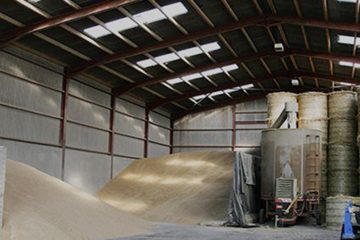A new series of free on-farm safety workshops are urging farmers to be more cautious across Northern Ireland.
These workshops target farmers, farm family members and farm workers to raise awareness, encouraging improvements and adoption of safer practices.
The ‘Stop and Think SAFE’ campaign was developed by the Farm Safety Partnership to help tackle the high rates of serious accidents and deaths on Northern Ireland’s farms.
‘SAFE’ reflects the four main causes of fatal accidents on local farms:
- slurry
- animals
- falls (from height)
- equipment
Victor Chestnutt, deputy president of the Ulster Farmers’ Union, gave recognition to being safer on the farm at a recent Arable Conference at CAFRE.
He is encouraging farmers and the farm family members to attend the workshops.
“As with all farm safety advice, the best approach remains to stop and think SAFE, even with everyday tasks. Farm Family Key Skills workshops on Health and Safety training are vitally important to raise awareness within farming families,” said the deputy president.
He continued:
“The UFU would encourage everyone to take the time to attend the free sessions that include looking at the dangers of slurry, working with animals, equipment and avoiding falls. Each workshop offers a mix of real life stories, up to date information and a practical understanding of on farm risks, how to identify them and how to manage them.”
Workshops also introduce farmers to the new construction requirements and raise awareness of the ‘Making it Safer’ tool, a key requirement for the new Farm Business Improvement Scheme (FBIS).
On-farm worshops will occur on these specific dates at 7pm:
- Tuesday, February 20, Eglinton;
- Thursday, February 22, Tandragee;
- Tuesday, February 27, Roslea, Fermanagh;
- Wednesday, March 7, Ballymena;
- Wednesday, March 14, Hilltown, Newry;
- Wednesday, March 21, Donemana.
Registration in advance of each workshop is essential. For further information or to register for a workshop, go online to www.cafre.ac.uk/industry-support/farm-family-key-skills or alternatively contact Samantha or Joyce at RDC on 028 8676 6980.



